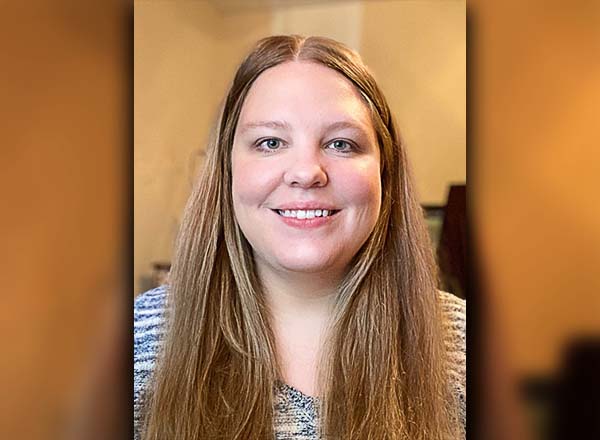HFC welcomes Dr. Sarah Plecha, biology instructor

HFC biology instructor Dr. Sarah Plecha mentored students throughout her graduate and postdoctoral research. Teaching seemed to be a natural progression for her.
“I was inspired to teach at the college level when I was doing my graduate work. We had a course in which we would assist medical students in their microbiology labs. I loved working with them. I taught at a community college my last semester of graduate school. I then started teaching at HFC when I was working at the University of Detroit Mercy because I wanted the experience and knew I had enjoyed it,” said Plecha, of Dearborn Heights.
Falling in love with research and science
Sarah's father Mark Plecha was a student at HFC (then Henry Ford Community College) in the 1970s and enjoyed telling her about his experiences.
“As I had gone to the University of Michigan-Dearborn and visited the HFC campus a few times, I knew that I really liked how close HFC was to downtown Dearborn and hiking trails,” said Plecha. “I really wanted more experience teaching, so I thought I would apply. Once I started as an adjunct, it confirmed that teaching was something I wanted to do for the rest of my life.”
Plecha has taught at HFC since 2019, and she became a full-time faculty member in the Winter 2022 Semester.
“I am very happy teaching at HFC,” said Plecha. “I cannot say enough how helpful everyone has been since I started as an adjunct and as a full-time instructor. My department has been fantastic at helping me whenever I need it.”
The eldest of three, Plecha was born in Bolingbrook, IL. She graduated from Stoney Creek High School in Rochester. Upon graduation, Plecha earned her bachelor's degree from UM-Dearborn, where she majored in biochemistry and minored in statistics. She earned her doctorate in immunology and microbiology from Wayne State University. Plecha also completed two postdoctoral research fellowships, the first at the University of Toledo and the second at UDM.
During her days at UM-Dearborn, microbiology professor Dr. Sonia M. Tiquia-Arashiro asked Plecha to help her with research at the Oak Ridge National Laboratory in Tennessee one summer. They worked on using bacteria to generate ethanol from the plant called switchgrass, in order for it to be used as an alternative fuel. This was the impetus to follow her career path, sparking Plecha’s love for research and science.
“When I was working on my Ph.D., I studied the bacteria Vibrio cholerae (which causes the disease cholera). I did my first postdoctoral research fellowship studying Vibrio cholerae as well. At both places, I studied how Vibrio cholerae could survive in the environment, but upon entering a human, the bacteria would become virulent and cause disease. I did my second postdoctoral research studying Yersinia pestis (the causative agent of the bubonic plague). Here I studied how Yersinia pestis was able to enter the human bloodstream, but not be killed by our white blood cells,” she explained.
Inspired by her students’ success
This semester, Plecha is teaching the lab portions of the following classes at HFC:
- Introduction to Biology
- Microbiology for the Allied Health Sciences
- Cellular and Molecular Biology
“The best part of teaching at HFC is interacting with the students. I teach a lot of lab courses, and that allows me to work with many students and really get to know them,” she said. “I love hearing their stories and how they can do so much while also going to school. Many of my students also have families, jobs, and other outside commitments. It is inspiring watching them succeed while also doing so much outside of school.”
Plecha continued: “Students should take my courses because I really love learning, and that makes me a better teacher. I get so much joy from watching students learn the material too. In lab, we can do so many hands-on experiments, which I think is really fun. When I am teaching lecture, I also try to make it interesting. Biology is really such a broad field of study with so many aspects to it. I always try to relate to my students by tying my lectures to real-world examples. So far, I have enjoyed working at HFC so much. I’ve been here full-time for just a short time, and it has been fantastic.”